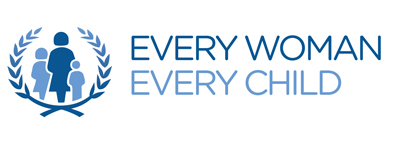HRP (the UNDP/UNFPA/WHO/World Bank Special Programme of Research, Development and Research Training in Human Reproduction), working with partners, commits to generate, synthesize, coordinate and implement a prioritized research agenda for improving reprod
Description
It will establish a global network of academic and research institutions, to develop and implement a global workplan to deliver a coordinated research agenda that informs policy formulation and strengthens health systems. Key issues will include the following actions in the 49 countries identified in the UNSG's Strategy: (a) fostering collaboration within a global network and with partners to facilitate strong linkages between academic/research institutions and government ministries to generate and apply research that identifies needs and barriers and facilitates implementation of interventions necessary to improve reproductive, maternal and newborn health; (b) promoting uptake of research findings that inform policies and programmes, including in partnerships with the private sector; (c) strengthening of research capacity in low-income countries to improve access to and quality of sexual and reproductive health services; (d) identifying and promoting best practices for advancing sexual and reproductive health; (e) supporting the scaling up of evidence-based interventions to improve reproductive, maternal and child health; (f) defining and updating norms and standards and facilitating their integration to support service delivery; (g) fostering innovation and development of new technologies, implementation strategies and innovative financing mechanisms that will improve sexual and reproductive health and reduce inequities in accessing services. It will work with academic and research centres from the north and south to support countries to define and implement priority interventions to accelerate progress on women's and children's health.
SDGS & Targets
Goal 5
Achieve gender equality and empower all women and girls
5.1
End all forms of discrimination against all women and girls everywhere
5.1.1
Whether or not legal frameworks are in place to promote, enforce and monitor equality and non‑discrimination on the basis of sex
5.2
5.2.1
Proportion of ever-partnered women and girls aged 15 years and older subjected to physical, sexual or psychological violence by a current or former intimate partner in the previous 12 months, by form of violence and by age
5.2.2
Proportion of women and girls aged 15 years and older subjected to sexual violence by persons other than an intimate partner in the previous 12 months, by age and place of occurrence
5.3
5.3.1
Proportion of women aged 20-24 years who were married or in a union before age 15 and before age 18
5.3.2
Proportion of girls and women aged 15-49 years who have undergone female genital mutilation/cutting, by age
5.4
Recognize and value unpaid care and domestic work through the provision of public services, infrastructure and social protection policies and the promotion of shared responsibility within the household and the family as nationally appropriate
5.4.1
Proportion of time spent on unpaid domestic and care work, by sex, age and location
5.5
Ensure women’s full and effective participation and equal opportunities for leadership at all levels of decision-making in political, economic and public life
5.5.1
Proportion of seats held by women in (a) national parliaments and (b) local governments
5.5.2
Proportion of women in managerial positions
5.6
Ensure universal access to sexual and reproductive health and reproductive rights as agreed in accordance with the Programme of Action of the International Conference on Population and Development and the Beijing Platform for Action and the outcome documents of their review conferences
5.6.1
Proportion of women aged 15-49 years who make their own informed decisions regarding sexual relations, contraceptive use and reproductive health care
5.6.2
Number of countries with laws and regulations that guarantee full and equal access to women and men aged 15 years and older to sexual and reproductive health care, information and education
5.a
Undertake reforms to give women equal rights to economic resources, as well as access to ownership and control over land and other forms of property, financial services, inheritance and natural resources, in accordance with national laws
5.a.1
(a) Proportion of total agricultural population with ownership or secure rights over agricultural land, by sex; and (b) share of women among owners or rights-bearers of agricultural land, by type of tenure
5.a.2
Proportion of countries where the legal framework (including customary law) guarantees women’s equal rights to land ownership and/or control
5.b
5.b.1
Proportion of individuals who own a mobile telephone, by sex
5.c
Adopt and strengthen sound policies and enforceable legislation for the promotion of gender equality and the empowerment of all women and girls at all levels
5.c.1
Proportion of countries with systems to track and make public allocations for gender equality and women’s empowerment
SDG 14 targets covered
Deliverables & Timeline
Resources mobilized
Partnership Progress
Feedback
Action Network


